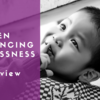Risk and Resilience: Differences in Risk Factors and Health Outcomes Between Homeless and Non-Homeless Students in 2017 YRBS Data

Research
Nov 9, 2018
The Youth Risk Behavior Survey (YRBS) was first developed by the Centers for Disease Control and Prevention (CDC) in 1990 to assess the health risk behaviors of youth and adults in the United States.

